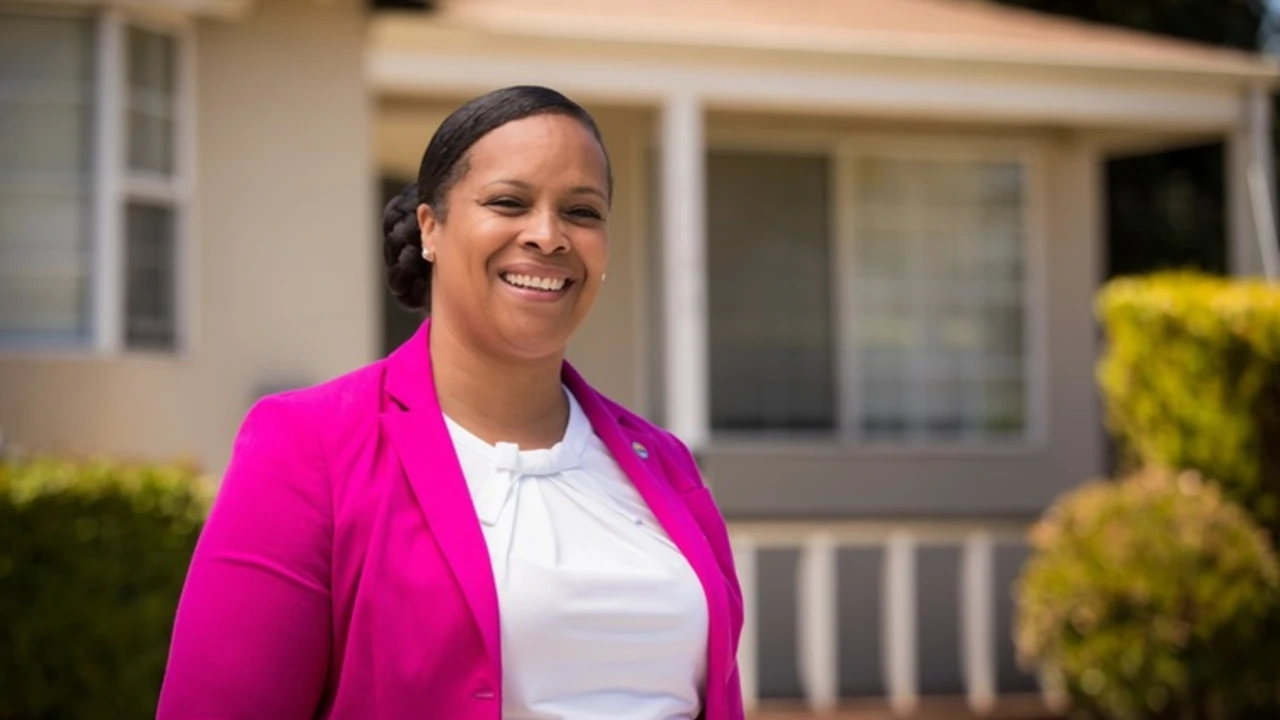Cook County, Illinois, may use the securitization structure pioneered by Chicago because its traditional sales tax security, like other revenue-backed credits, has lost some of its luster with rating agencies and investors.
Revenue credits have taken a hit due to court rulings in Puerto Rico’s bankruptcy process and as some rating agencies revamp criteria to more closely link a revenue rating to that the general obligation credit of its issuing government or obligor. S&P Global Ratings cut Cook County’s sales bonds three notches last year.

“It’s on our radar,” Cook County chief financial officer Ammar Rizki said in an interview after a discussion on financing solutions for local governments at The Bond Buyer’s Midwest Municipal Market Conference in Chicago last week. “This is very preliminary.”
State legislation would be needed to extend the securitization structure established in the 2017 legislative session for municipal home rule units to county governments, Rizki said. The 2019 legislature has already adjourned.
Before deciding to pursue securitization, the county wants to see where spreads land on a roughly $150 million sales tax deal planned in the next three to six months to retire a short-term line used for interim financing. The county typically sees a 20 basis point to 30 basis point between its GO and sales tax credits that favor the sales tax.
The county will watch for the impact of the December downgrade and any other material future rating changes on revenue credits before seeking state legislation. The county is not under the same pressures as Chicago, whose weak ratings impaired its sales tax credit, so there’s not a big rush, but securitization does offer a potential option to “protect the cost of capital,” Rizki said.
The county collects about $850 million in annual sales taxes that provide more than 14 times debt service coverage of existing debt.
The securitization structure was established at the urging of former Chicago chief financial officer Carole Brown who enlisted several local bond counsel firms to draft the legislation. The city issued nearly $3 billion between late 2017 and early 2019 to refund existing sales tax and general obligation debt to trim rising GO debt service.
The city’s deals were rated AA-minus by S&P and AAA by Fitch Ratings and Kroll Bond Rating Agency, far higher than Chicago's GO ratings, which range from a low of junk to a high in the single-A category with two in BBB territory.
The lockbox structure benefits from the sale of revenues to a bankruptcy-remote special entity that insulates the structure from the local government’s fiscal distress. Strong legal protections that guard against state interference and the flow directed to the trustee are built into the structure as well as sturdy debt service coverage ratios. The market still imposed penalties on the Chicago deals for its fiscal woes. Critics have warned the structure is untested in the courts.
S&P cut Cook’s AAA sales tax rating by three notches to AA in December as it applied its revised priority lien debt criteria to the county’s credit. It impacted about $416 million of debt sold in 2012, 2013, 2017, and earlier in 2018.
“The priority-lien rating on the county's sales tax revenue bonds is limited by our view of the obligor's creditworthiness,” wrote S&P, which rates the county’s general obligation debt at AA-minus with a negative outlook. “Under our priority lien criteria, there is a link between the attributes of the priority-lien pledge” and the obligated government.
Fitch Ratings rates Cook County A-plus with a stable outlook. Moody’s Investors Service rates the county A2 with a stable outlook.
The county last year asked Kroll Bond Rating Agency to rate the revenue bonds. Kroll assigned its AAA rating.
The recent U.S. Court of Appeals for the 1st Circuit ruling related to the Puerto Rico Highways and Transportation Authority bonds has further thrown some revenue structures into a tailspin prompting various reviews and actions by several rating agencies.
The appellate court’s March 26 decision upheld the district judge’s ruling that payment of special revenues are voluntary, rather than mandatory as has been the long-standing tradition in Chapter 9 proceedings. Special revenues pledged to revenue bondholders are only exempt from the automatic stay that halts payments to creditors if the municipality voluntarily pays the special revenues to the bondholders.
Robert Christmas, a partner at Nixon Peabody LLC, Chicago’s transaction counsel, stressed during a panel discussion on revenue pledge and lien status developments that the Puerto Rico decision has no impact on the Chicago sales tax securitization structure. “This decision does not put them at risk,” he said.
Discussions over the value of revenue credits in the aftermath of rating changes and Puerto Rico spanned panel discussions at last week's Chicago event, generating more questions than answers.
“Just a few years ago people were shifting into special revenue bonds from general obligation bonds. And now, if the risk is in the same bucket, why not just buy GOs? It gets more interesting as you go down the credit curve. I don’t know what the answer is yet,” said Bill Black, a senior portfolio manager at City National Rochdale.
Cook County isn't alone in its struggle to keep borrowing costs in check and adjust to changing market conditions.
Indianapolis and Marion County turned to a special revenue pledge for a new criminal justice center.
“We decided we would use our strongest revenue streams and strongest credit and craft a couple of series that would enable us to pay for the facilities that would comply with Indiana law and give us the strongest credit and best outlook and we could also keep it neutral, budget wise and make it a successful transaction,” Sarah Riordan, executive director of the Indianapolis Local Public Improvement Bond Bank, said at the conference.

The city used the special revenue pledge of local income taxes to secure payments on $610.5 million, 35-year bonds that financed the city-county’s adult detention facility and local courthouse. Local income tax is derived from an income tax with a flat rate structure imposed on state adjusted gross income of county taxpayers that is authorized by statute and available to all Indiana municipalities.
The tax revenue is distributed by the state treasurer to the county treasurer on a monthly basis. Riordan said the city-county entered into an agreement with the county treasurer to transfer the appropriate amount from the state directly into a segregated fund that would be used to pay the bonds.
“We knew we had to make as clear connection between state treasurer and bondholders without having too many places where the money could land in between and be subject to a potential interception or appropriation or something of that nature,” Riordan said.
“Segregating funds is positive for credit quality because it reduces the risk that the city county will somehow interfere in that flow of funds,” Alexandra Parker, a managing director at Moody’s, said on the panel with the Indianapolis and Cook County officials. “This way they can’t even touch them. There is always a way to interfere but there is less risk that city will, which is positive for bondholders.”
Parker called the Puerto Rico rulings a seminal moment that dispels the notion and the assumption that the rights of bondholders with special revenue pledges were always going to be upheld, but said the revenue pledge still has value.
“The problem or the challenge is, as highlighted by the court ruling on Puerto Rico, it is not always going to be the case that bondholders with special revenue pledge will be better off than GO pledge,” she said. “It doesn’t mean that at the end of the day they won’t have a better recovery than the GO, but it could mean that they are impaired, because if they don’t continue to receive debt service during bankruptcy – which is what the ruling said – and the issuer could decide to use these funds to support general obligations.”
Moody’s links the ratings for special revenue or special tax pledges to GO ratings. “There is an overlap in credit attributes,” Parker said. “If you take income and sales taxes, these are largely based on the issuer’s economic profile and revenue performance, which are really key factors in issuer GO credit.” Moody’s rated the criminal justice center bonds one notch below its AAA rating of Indianapolis.
—Aaron Weitzman contributed to this story.





